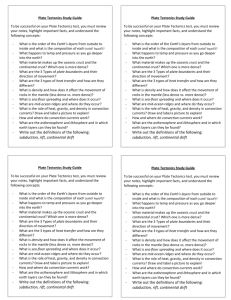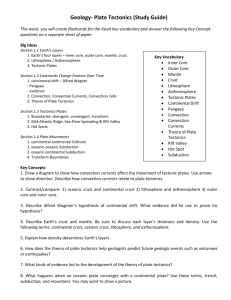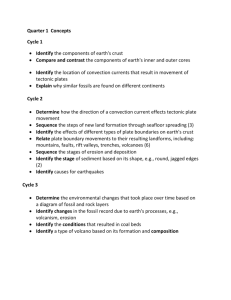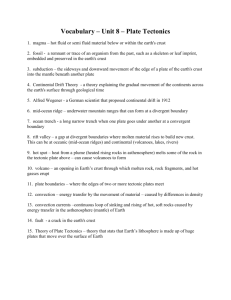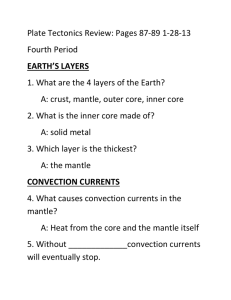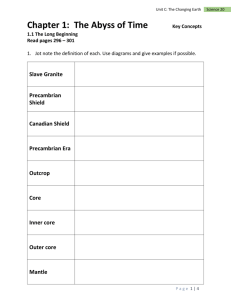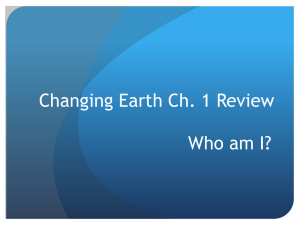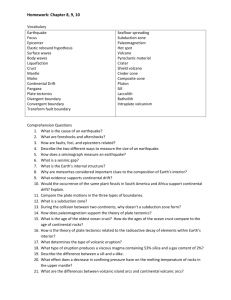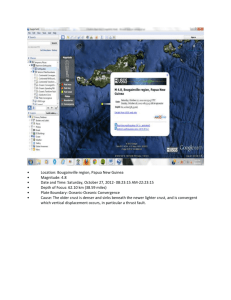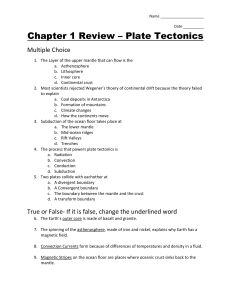Plate Tectonics Review To be successful on your Plate Tectonics
advertisement
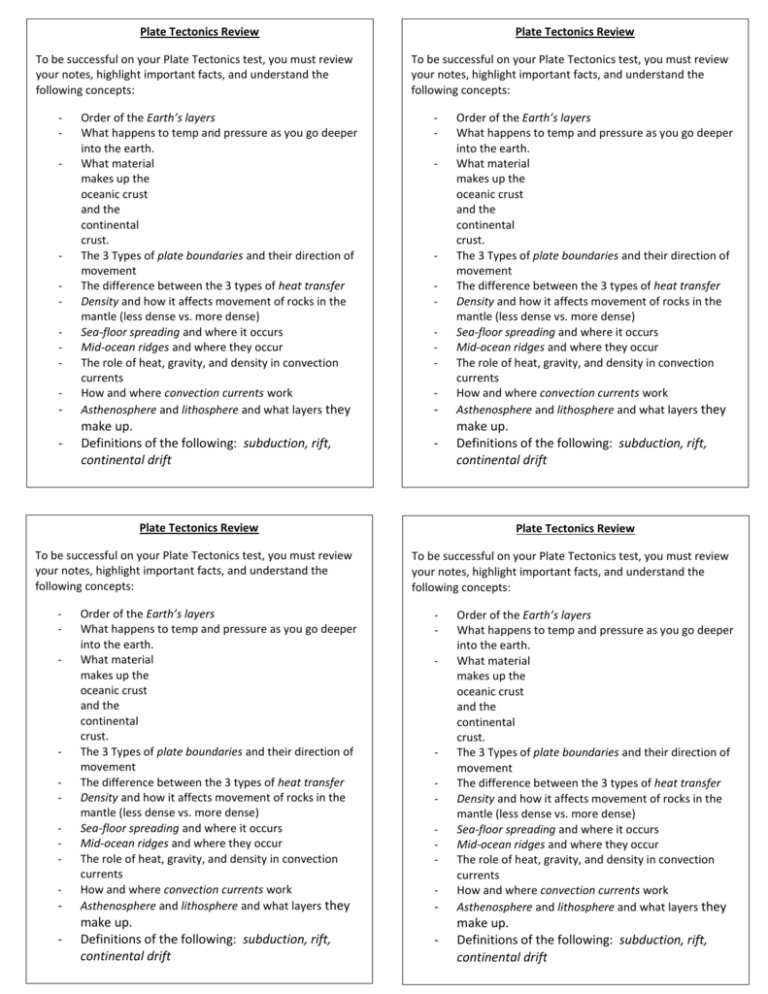
Plate Tectonics Review To be successful on your Plate Tectonics test, you must review your notes, highlight important facts, and understand the following concepts: - - - Order of the Earth’s layers What happens to temp and pressure as you go deeper into the earth. What material makes up the oceanic crust and the continental crust. The 3 Types of plate boundaries and their direction of movement The difference between the 3 types of heat transfer Density and how it affects movement of rocks in the mantle (less dense vs. more dense) Sea-floor spreading and where it occurs Mid-ocean ridges and where they occur The role of heat, gravity, and density in convection currents How and where convection currents work Asthenosphere and lithosphere and what layers they make up. Definitions of the following: subduction, rift, continental drift Plate Tectonics Review To be successful on your Plate Tectonics test, you must review your notes, highlight important facts, and understand the following concepts: - - - Plate Tectonics Review To be successful on your Plate Tectonics test, you must review your notes, highlight important facts, and understand the following concepts: - - - Order of the Earth’s layers What happens to temp and pressure as you go deeper into the earth. What material makes up the oceanic crust and the continental crust. The 3 Types of plate boundaries and their direction of movement The difference between the 3 types of heat transfer Density and how it affects movement of rocks in the mantle (less dense vs. more dense) Sea-floor spreading and where it occurs Mid-ocean ridges and where they occur The role of heat, gravity, and density in convection currents How and where convection currents work Asthenosphere and lithosphere and what layers they make up. Definitions of the following: subduction, rift, continental drift Order of the Earth’s layers What happens to temp and pressure as you go deeper into the earth. What material makes up the oceanic crust and the continental crust. The 3 Types of plate boundaries and their direction of movement The difference between the 3 types of heat transfer Density and how it affects movement of rocks in the mantle (less dense vs. more dense) Sea-floor spreading and where it occurs Mid-ocean ridges and where they occur The role of heat, gravity, and density in convection currents How and where convection currents work Asthenosphere and lithosphere and what layers they make up. Definitions of the following: subduction, rift, continental drift Plate Tectonics Review To be successful on your Plate Tectonics test, you must review your notes, highlight important facts, and understand the following concepts: - - - Order of the Earth’s layers What happens to temp and pressure as you go deeper into the earth. What material makes up the oceanic crust and the continental crust. The 3 Types of plate boundaries and their direction of movement The difference between the 3 types of heat transfer Density and how it affects movement of rocks in the mantle (less dense vs. more dense) Sea-floor spreading and where it occurs Mid-ocean ridges and where they occur The role of heat, gravity, and density in convection currents How and where convection currents work Asthenosphere and lithosphere and what layers they make up. Definitions of the following: subduction, rift, continental drift
